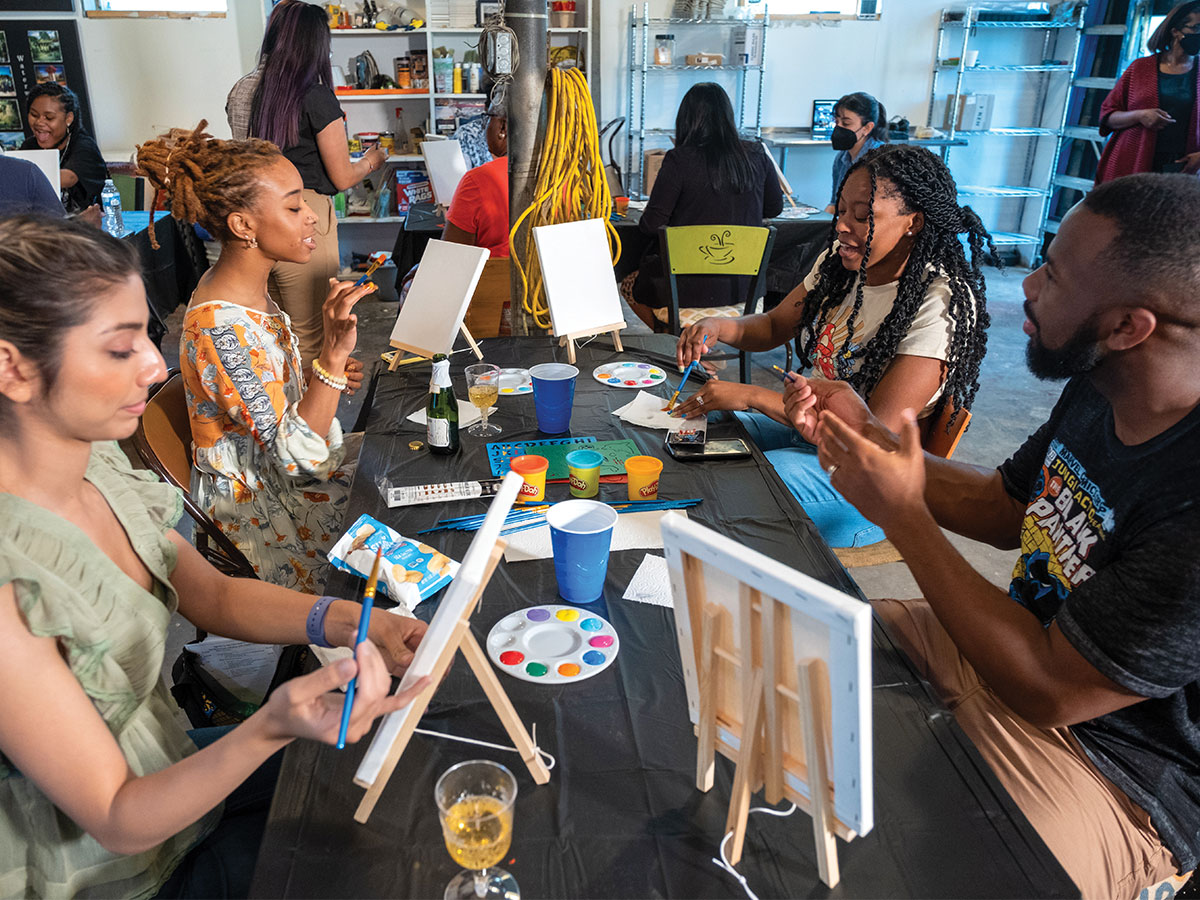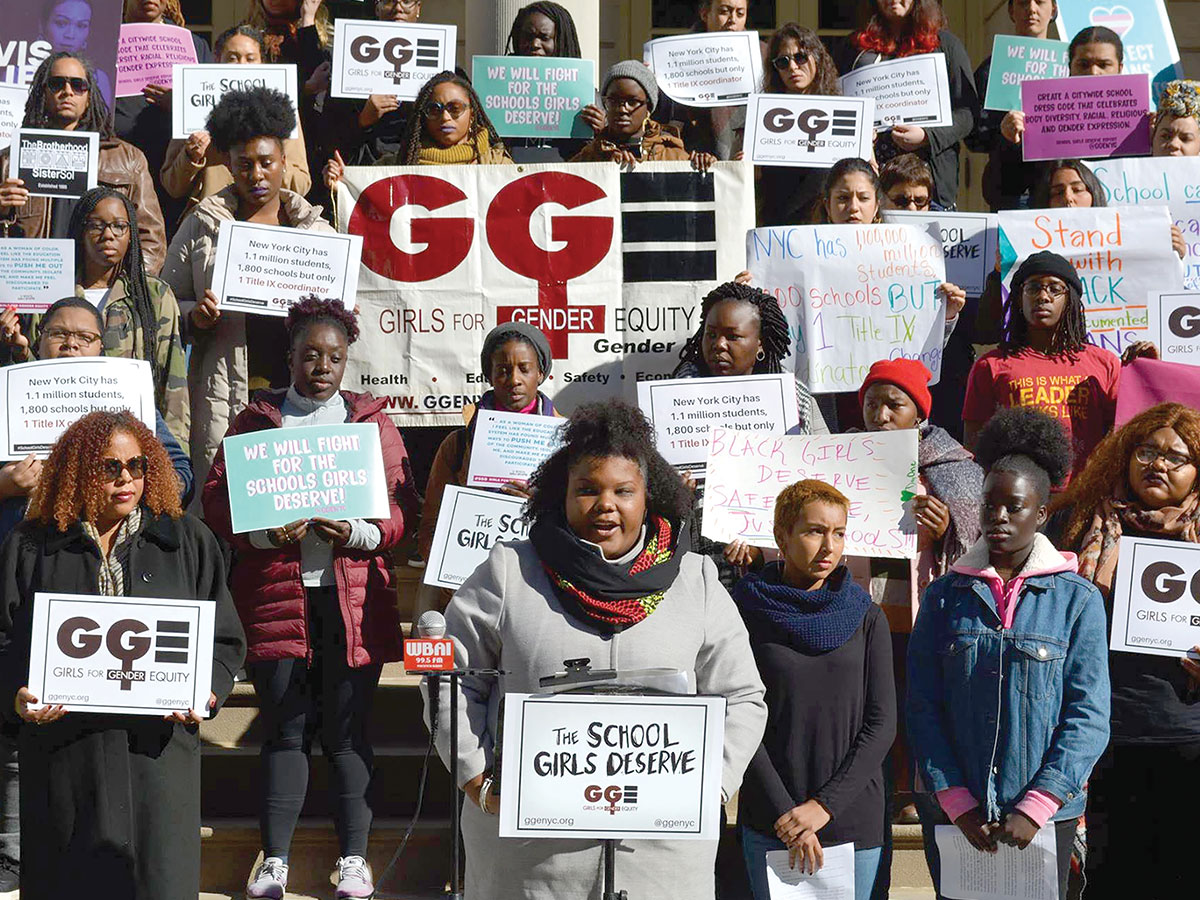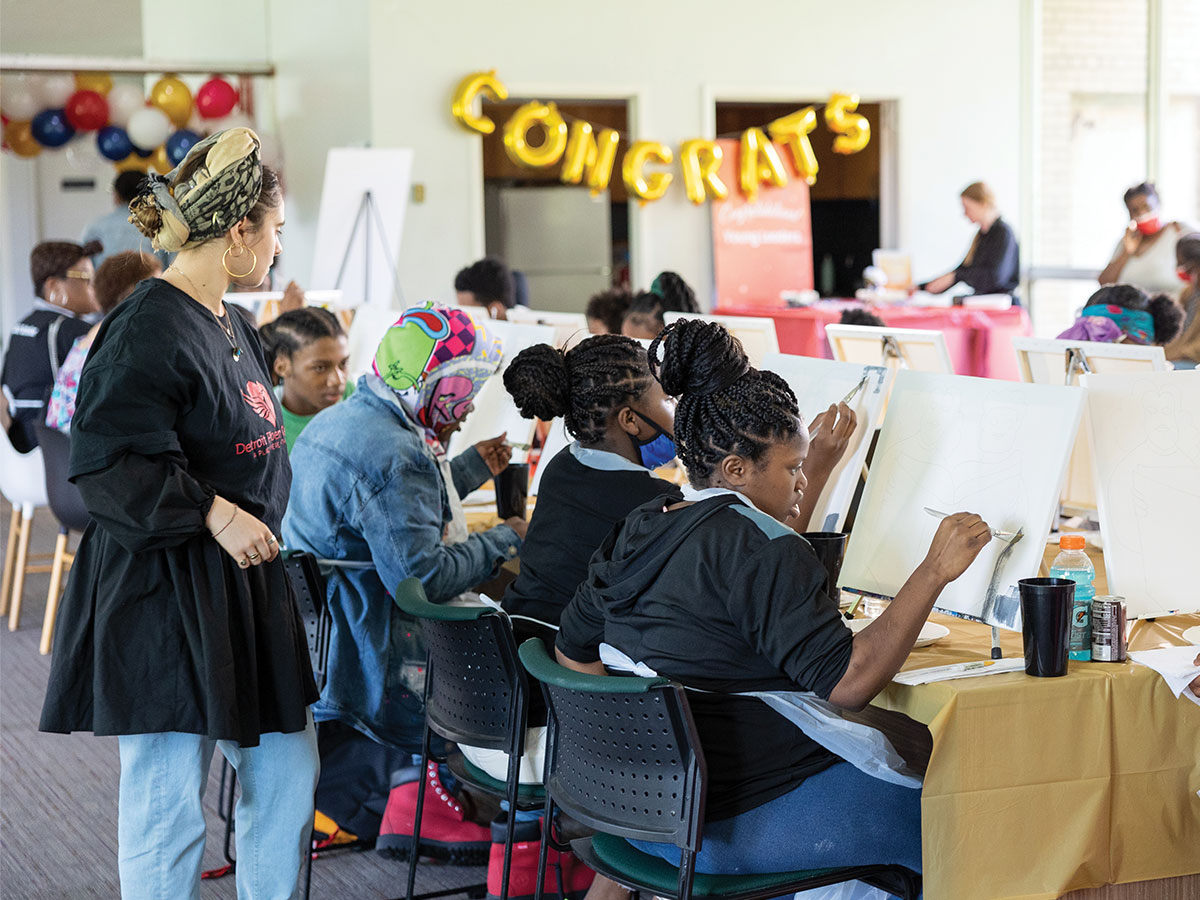Getting Real About Grantee Feedback, Power, and Humility

On April 1, The Libra Foundation announced that they are doubling their grantmaking this year from $25 million to $50 million, stating that “the doubling represents the Foundation’s focus on the historic importance of 2020 and a deep commitment to supporting organizations led by and building power with those most impacted by systemic oppression. The funds are designed to enable grantee partners to respond and adapt to the grave threats our democracy is facing as well as the economic and public health impact of the COVID-19 crisis as they set about the difficult work of rebuilding our communities and greater society.”
In its announcement, Libra called on other funders to listen deeply to their grantee partners.
Recently, Libra Knowledge and Grants Manager Ashley Clark talked with PEAK’s Melissa Sines about grantee and grantseeker feedback, and the ways in which this can impact the work a foundation is doing. PEAK was interested in learning more about this process to uncover how Libra, as a foundation whose commitment to equity is baked into their mission, is tying practices to values and narrowing the power gap in their work.
The Libra Foundation Mission Statement: We believe that all people are born with equal and inalienable rights and fundamental freedoms, and have a right to live in a healthy environment and in peaceful, just and equitable societies. Promoting these human rights is the highest purpose we can envision for the grantmaking of The Libra Foundation.
Melissa Sines: What caused Libra to think about getting feedback from grantseekers? What was your sense, at the beginning, about what you would do with that information?
Ashley Clark: A couple of years ago, as a brand new team working on the next evolution of The Libra Foundation, we began to think about what our processes might look like and how we wanted to be in relationship with our grantees. Before we made any changes, we knew it was important to gather our grantees’ perspectives. We commissioned CEP to conduct a Grantee and Applicant Perception Report and the results were enlightening (and sobering).
We learned that our vision for who we thought we were didn’t quite match the experiences of our grantees. We used the term grantee partners, but discovered that our grantees did not feel like they had a close enough relationship with us to be called partners. We also heard that our processes were overly time-consuming and that we were asking longtime grantees questions to which we should already know the answers.
This feedback helped us make some pretty significant changes. We tried to fulfill our goal of being a true partner in new ways such as showing up when invited to see firsthand what it looks like to build long-term power in their communities, uplifting grantees’ work and introducing them to other funders, and even using any semblance of power that we have to create opportunities to present at tables and in spaces where they might not normally be.
In terms of processes, we eliminated final reports because we could touch base with folks when they’re going through the renewal process instead of asking them to do a final report and apply for renewal. We also streamlined our applications and reports from a whole lot of “nice to have” questions to three that we feel are important. And we introduced a lot of flexibility: grantees can opt to provide written answers to those three questions, have a phone conversation, or submit something they’ve already submitted to another funder.
Sines: How do you gather feedback on an ongoing basis? How do you continue to reduce the burden on grantees in terms of applying and reporting?
Clark: We created a short survey that gives grantee partners the opportunity to anonymously answer a few questions at the end of every grant cycle. We ask how much time the process took them, what worked well, and what could be improved. And we provide an open-ended question for people to share further thoughts, which is where we get the most specific feedback – including things that would not have occurred to us.
We’ve also learned that if you want people to respond, you have to act like you actually want to hear what they have to say and give them enough time to complete it. For us, this usually means about two weeks.
Sines: Super technical question: What tool do you use to collect responses?
Clark: We use Google Forms. It collects their answers, dumps them into a spreadsheet, and gives us nice graphs to reference. It also makes it easy for us to copy it over year-to-year or cycle-to-cycle and see our trends.
Sines: Can you tell me about where you’ve been able to improve your processes in response to feedback?
One of the biggest things I’ve learned is that I shouldn’t make assumptions about what grantee partners want… Ultimately, I think, what people value most is flexibility.
Clark: One of the biggest things that we’ve learned is that we shouldn’t make assumptions about what grantee partners want. For instance, we came into this process thinking that grantee partners would always prefer the shortest application. But, cycle after cycle, we’ve gotten pushback when we try to pare things down too much. Our grantee partners appreciate the option, but not the requirement, to provide extra information that can help us better understand their work.
Ultimately, I think, what people value most is flexibility. If we’re clear about what the process is, and provide a variety of different ways to engage, then people can choose what makes the most sense for them.
Sines: Can you tell me how it makes you feel to work at an organization that aligns with your personal values? How does this commitment to responsiveness make you feel on the job?
Clark: I get excited when it’s time to get this feedback, because I know it matters. That spirit of continuous improvement – the sense that we’re never really finished, that we will never have all the answers, that humility is a guide.
Another piece comes from our fearless leader, Crystal Hayling, and the family we work for: that we really are working in service of our grantee partners. Gathering and responding to feedback is just a part of the picture. How we endeavor to treat them, how we want them to feel respected and cared for, is emblematic of our commitment to sharing power, instead of hoarding or wielding it for ourselves.
We are honored, privileged, and excited to unleash Foundation resources in service of those who are doing that actual work. The humility with which we approach our role helps us do that job better.
And that’s the way it should be. That’s why I want to share our story – by doing this interview, conducting webinars on the topic, talking to other funders, and whatever else we can do to encourage other funders to eliminate the red tape so that these leaders can focus on their critical work (and not on our applications and reports)..
In photo (from left): The Libra Foundation team members Angie Chen, Senior Program Officer; Crystal Hayling, Executive Director; Ashley Clark, Knowledge and Grants Manager; and Jennifer Agmi, Senior Program Officer.




